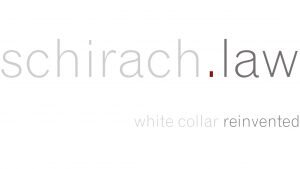Best Antitrust Litigation Lawyers in Munich
Share your needs with us, get contacted by law firms.
Free. Takes 2 min.
List of the best lawyers in Munich, Germany
About Antitrust Litigation Law in Munich, Germany
Antitrust litigation plays a significant role in promoting fair competition and protecting consumers and businesses from unlawful market practices in Munich, Germany. The city is a major commercial hub and home to numerous industries and multinational corporations. German and European competition laws strictly regulate practices such as cartels, price-fixing, abuse of dominant market positions, and anti-competitive mergers. When these laws are violated, legal action known as antitrust litigation can be initiated by individuals, businesses, or governmental authorities to halt anti-competitive behavior, seek damages, or enforce regulatory compliance.
Why You May Need a Lawyer
Antitrust litigation is a highly complex legal area involving intricate laws, economic assessments, and procedural rules. Common situations where individuals or businesses in Munich may require legal help include:
- Facing investigation by competition authorities for suspected antitrust violations.
- Discovering that your company has been harmed by unfair business practices such as price-fixing or exclusion from the market.
- Planning mergers or strategic alliances that may attract scrutiny under antitrust laws.
- Responding to cease-and-desist orders, fines, or other enforcement actions from authorities.
- Pursuing or defending against claims for damages resulting from anti-competitive conduct.
- Responding to requests for information or raids by the German Federal Cartel Office (Bundeskartellamt) or the European Commission.
- Navigating compliance programs and training for employees to avoid accidental violations.
Navigating these cases often requires expert legal knowledge, strategic advice, and an understanding of both legal and economic factors.
Local Laws Overview
In Munich, antitrust litigation is primarily governed by German and European Union competition laws. The key legal framework includes:
- Act Against Restraints of Competition (Gesetz gegen Wettbewerbsbeschränkungen or GWB): This is the primary German law regulating anti-competitive agreements, abuse of market power, and merger control.
- Articles 101 and 102 of the Treaty on the Functioning of the European Union (TFEU): These EU provisions prohibit anti-competitive agreements and the abuse of a dominant market position, respectively.
- Enforcement Authorities: The Federal Cartel Office (Bundeskartellamt) and the European Commission play central roles in investigating and prosecuting antitrust violations.
- Civil Litigation: Parties who suffer losses as a result of anti-competitive conduct can file for damages in German civil courts. The Regional Court of Munich (Landgericht München) commonly handles such cases for the region.
- Leniency Program: Companies that cooperate with investigations may receive reduced fines through official leniency programs.
- Fines and Sanctions: Violations can lead to significant financial penalties and even criminal liability in cases involving individuals behind certain infringements.
Munich, as a sophisticated economic center, frequently sees high-profile antitrust cases, often with cross-border implications.
Frequently Asked Questions
What is antitrust litigation?
Antitrust litigation involves legal proceedings to address violations of competition laws. This can include actions against cartels, abuse of dominant positions, or anti-competitive mergers.
Who can initiate antitrust litigation in Munich?
Government authorities such as the Federal Cartel Office or the European Commission can pursue enforcement actions. Businesses or individuals harmed by anti-competitive practices can also file civil lawsuits.
What are typical antitrust violations in Germany?
Common violations include price-fixing agreements, market allocation, bid-rigging, abuse of market dominance, exclusive dealing, and illegal mergers.
How are antitrust cases investigated?
Authorities may use dawn raids, request information, interview witnesses, or review company records to collect evidence of potential violations.
What penalties can be imposed for antitrust violations?
Penalties can include heavy fines, damage compensation, orders to cease certain practices, disqualification of managers, and in severe cases, criminal charges.
Can affected businesses or individuals claim damages?
Yes, parties harmed by anti-competitive behavior can file for compensation through civil litigation in the German courts.
How does merger control work in Munich?
Certain mergers or acquisitions must be notified to the Federal Cartel Office or the European Commission if they meet market share or turnover thresholds. Approval is required to ensure no harm to competition.
Are there compliance requirements for businesses?
Yes, businesses are expected to have compliance programs to educate staff and prevent antitrust law violations. Regular audits and training are highly recommended.
What is a leniency program?
A leniency program allows companies or individuals involved in an antitrust violation to receive reduced penalties in exchange for their cooperation with authorities during investigations.
Why is it important to consult a lawyer for antitrust issues?
Legal professionals can help navigate investigations, defend or file claims, ensure compliance, and minimize risks. Antitrust law is complex, and early legal advice can be crucial.
Additional Resources
If you are seeking more information or assistance regarding antitrust litigation in Munich, consider the following resources:
- Bundeskartellamt (Federal Cartel Office): The main German authority for competition matters, offering detailed guidance, press releases, and case databases.
- European Commission - Directorate-General for Competition: The EU body responsible for enforcing European competition law.
- Bavarian State Ministry of Justice: Provides information about the court system and regional jurisdiction in Munich.
- Munich Bar Association (Rechtsanwaltskammer München): Can help you find qualified lawyers specializing in antitrust law.
- Chambers of Industry and Commerce (IHK München): Offers legal information sessions for businesses on compliance topics.
Engaging with these bodies can clarify your rights, responsibilities, and the procedures you may face.
Next Steps
If you believe you are involved in or impacted by an antitrust issue in Munich, Germany, consider the following actions:
- Document all relevant facts, communications, and potential evidence relating to the case.
- Seek professional legal advice from a lawyer experienced in antitrust litigation as soon as possible.
- Contact the relevant authorities if you wish to report a potential violation or need guidance on compliance.
- If your business is at risk, consider implementing or reviewing your internal compliance programs to prevent future violations.
- Gather information on key deadlines and procedural requirements to protect your legal rights.
Taking swift and informed action with the assistance of a qualified local attorney will help you address antitrust litigation matters effectively and safeguard your interests.
Lawzana helps you find the best lawyers and law firms in Munich through a curated and pre-screened list of qualified legal professionals. Our platform offers rankings and detailed profiles of attorneys and law firms, allowing you to compare based on practice areas, including Antitrust Litigation, experience, and client feedback.
Each profile includes a description of the firm's areas of practice, client reviews, team members and partners, year of establishment, spoken languages, office locations, contact information, social media presence, and any published articles or resources. Most firms on our platform speak English and are experienced in both local and international legal matters.
Get a quote from top-rated law firms in Munich, Germany — quickly, securely, and without unnecessary hassle.
Disclaimer:
The information provided on this page is for general informational purposes only and does not constitute legal advice. While we strive to ensure the accuracy and relevance of the content, legal information may change over time, and interpretations of the law can vary. You should always consult with a qualified legal professional for advice specific to your situation.
We disclaim all liability for actions taken or not taken based on the content of this page. If you believe any information is incorrect or outdated, please contact us, and we will review and update it where appropriate.











